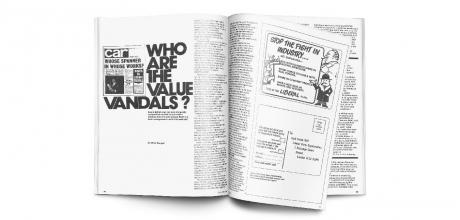In July 1973, the British car industry’s woes were just beginning. But were unions or American management at fault?
On the cover of CAR’s July 1973 issue the tabloid-style headline screamed ‘Whose Spanner In Whose Works?’ The story of the British car industry’s woes in the Seventies is wellknown in retrospect, with unrealistic trade union demands and corner-cutting management generally blamed. But this article brings in an international angle that’s rarely discussed. ‘British Leyland’s much vaunted money injection last spring may have come too late,’ wrote Clive Ranger. ‘In 1971 they invested only £48 million against £130 million for Fiat and £124 million for VW. No wonder foreign competitors in the British market have become a cause for concern.’
‘Parity with Chrysler almost brought Ford to a full stop’
50 years ago today — looking back without hindsight
In the UK, however, most car makers were US-owned, bringing US practices with them. ‘Chrysler put through wage rates that made lords of the Avenger workers,’ Ranger noted. ‘In so doing they hoisted production to an all-time high, dislodged Vauxhall from the number three slot in the sales charts and smashed shopfloor militancy by paying more than even the shop stewards thought feasible.’
By contrast, ‘Ford have the most sinister labour relations and management philosophy.’ Ranger recalled Henry Ford II branding British workers ‘lazy’, and reported an anonymous Dagenham worker saying ‘the line here is made for morons. It doesn’t need any thought. They tell you: we don’t pay you for thinking. Everyone comes to realise they’re not doing a worthwhile job… You just look at your pay packet – you look at what it does for your wife and kids. That’s the only answer.’ Ranger reports that ‘In March 1971 Ford switched production of engines and parts to its plant in West Germany because of a shortage caused by Ford GB strikes’ – strikes that came about when Ford workers demanded parity with Chrysler workers.
Interestingly, British Leyland seemed to be the least troubled in 1973, but Ranger foresaw problems. The Austin Allegro had actually received a warm welcome a few months earlier. But ‘BL have been cutting more than the usual number of corners to get the car into showrooms.’ Journalists got to drive reliable handbuilt prototypes, while export markets were rejecting the production Allegro. The French found it underpowered and ugly, the Germans said it was ill-handling and unrefined at speed, and the Scandinavians suspected it wouldn’t stand up to winter use.
What a difference a decade would make. PSA bought Chrysler and made a success of Peugeot in the UK for 20 years, Ford became a model of stability until recently – and people are still making Allegro jokes and lamenting the loss of BL to this day.


